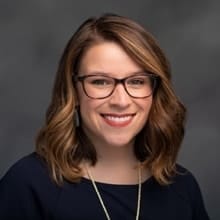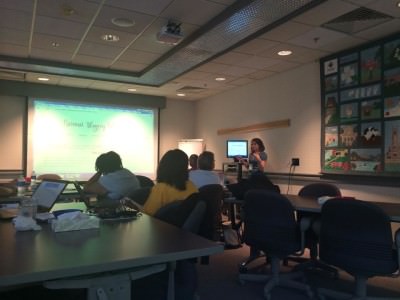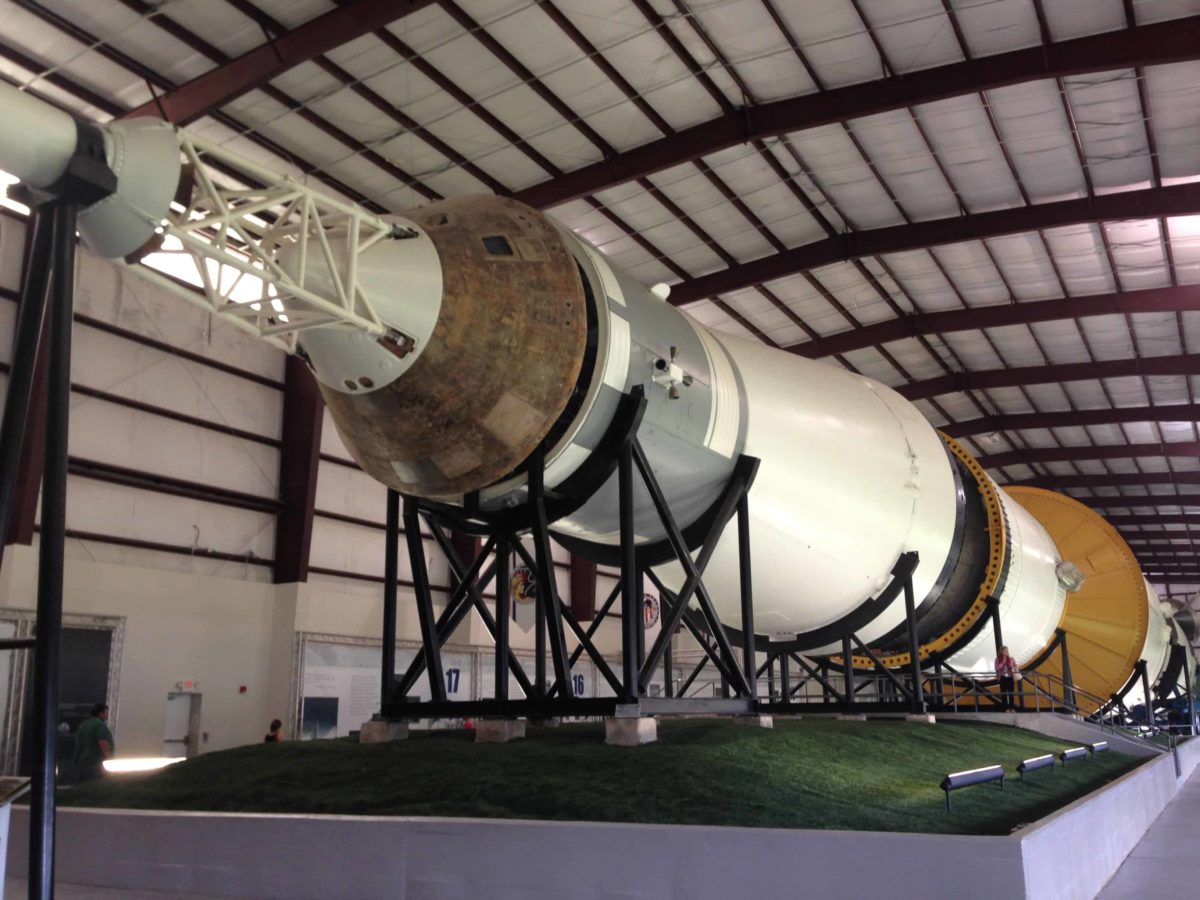

In May, I read a Congratulations! on my iPhone screen as my Gmail notifications began to bing, my kids all immediately asked me what was going on.
“I’m going…to…well, basically TEACHER SPACE CAMP!”
Needless to say, my kids shared in my moment of intense bliss, screaming, and jumping up and down with me.
See, my kids love space in all its vast, immeasurable glory. We spent about nine weeks earlier in the year working on a rigorous space and flight unit that I wrote last summer during my Kenan Fellows internship, and my class has been highly invested in the space game ever since. When we all found out that I was heading to Houston at the end of June, it was completely normal for us to be this excited.
Flash forward about a month and a half from that blissful moment: school’s out for the summer, I curriculum planned for three days, hit the pool once with my best friend, went to Monuts Donuts, led professional development at NCCAT for Kenan Fellows, watched my oldest friend get married, and BOOM, it’s time for me to fly to Houston.
Honestly, I felt like a five year old going off to sleep away camp for the first time when my dad dropped me off at the airport at 7:30am on a Sunday. He helped me get my bag out of the truck, gave me a hug, and told me to have fun; then, he waved his hearty wave and drove off into the traffic of the Charlotte-Douglas International Airport. I stood there, alone, with my tye-dye backpack hanging off my 5’ frame, wearing my glow-in-the-dark constellations shirt. It was finally time to go to sleep away camp for teachers who are really nerdy about space.
When I landed in Texas, we hit the ground running. Everything was highly informative, but I did have a few favorite activities.
Hearing the expertise of retired engineer Norm Chaffee
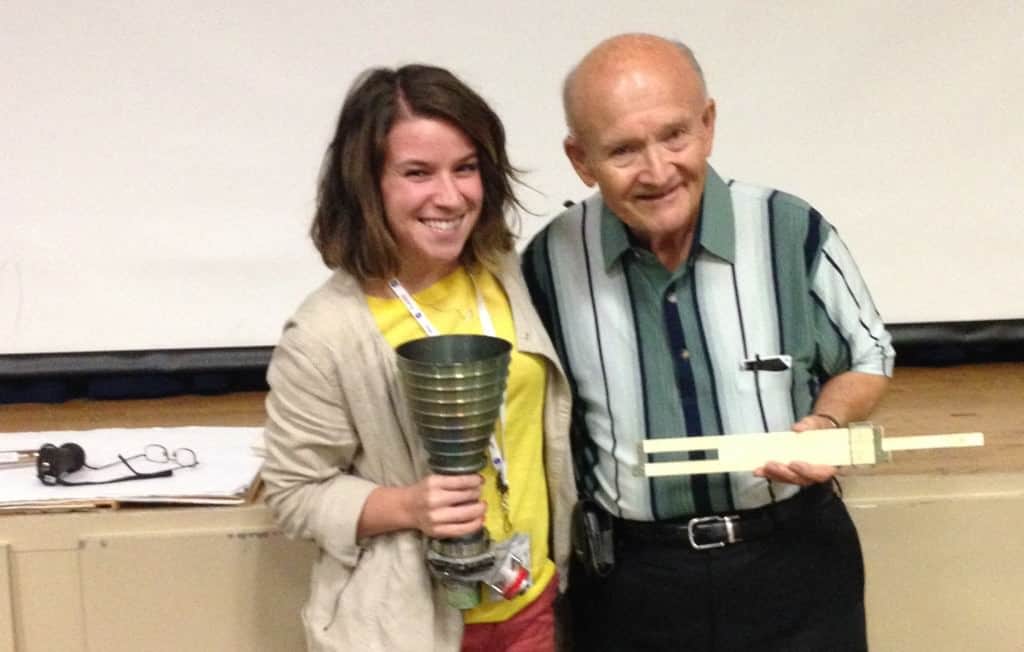

This man started working for NASA in 1962 (…1962!) and recounted his time as a rocket engine engineer. He spoke fondly of the Apollo 8 and Apollo 11 missions; it was like watching a History Channel special play out five feet away from me. He trekked with us over to Rocket Park at NASA’s Johnson Space Center, carefully detailing each stage of the rocket to us. It’s incredible talking to a person with experience like this man, who has seen so much change happen in this industry.
Participating in a Mission Control simulation
Our group was split so half of us were in a Mission Control room and the other half were in a spacecraft. Everyone had a job in both the control room and on the spacecraft, and we communicated according to our list of instructions, just like they do in actual Mission Control. We dealt with problems along the way, like gas leaks on the vehicle. It was exhilarating to take part in an activity like this where you really put yourself in the place of the people working at NASA, both on the ground and in the air.
Experiencing fieldwork with experts
My favorite thing about the entire week’s experience was going out to the NASA labs. We went to the robotics lab, the food science lab, and the neutral buoyancy lab. I had the opportunity to hear from the people working in these labs firsthand and got to watch some of these brilliant engineers do their work. I saw Robonaut up close and personal, heard from one of the main engineers of the Orion spacecraft, and watched a Mars rover get test driven around the parking lot. I learned how the food scientists cook and package food for the astronauts. I witnessed the life-sized mockup of the International Space Station (ISS) submerged in 40 feet of water to help train astronauts for their extravehicular activities (EVAs). Even when I wasn’t walking around a lab dragging my jaw on the floor behind me, experts came to us in our conference rooms. We heard from a NASA spacesuit engineer, ISS science officers, and astronauts, both active and retired.
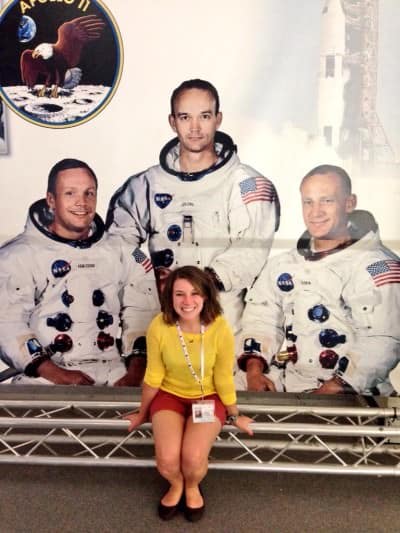

This experience was the truest, most authentic academic professional development I’ve experienced. It wasn’t sprinkled with classroom management and pedagogy, but was strictly science-based. I was given resources to actually apply the science knowledge I gained, and I can’t wait to share that with my students this fall.
Kids, get ready to look at a lot of NASA satellite photos of the Outer Banks and study the future of space exploration!
Now it’s time for me to repack my bags and get ready for a cross-country trip to Seattle, Washington. I’m attending the ECET2 (Elevating and Celebrating Effective Teaching and Teachers) Leadership Conference with the Gates Foundation for Education. I look forward to collaborating with other teacher leaders from across the United States and to finally meet some of my favorite Twitter educators in person!
Want to follow my educational escapades? Follow the hashtags #travelingteacher and #araecrossestheUSA on Twitter and Instagram!
